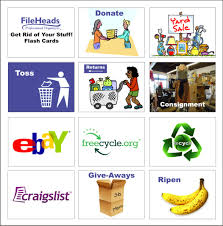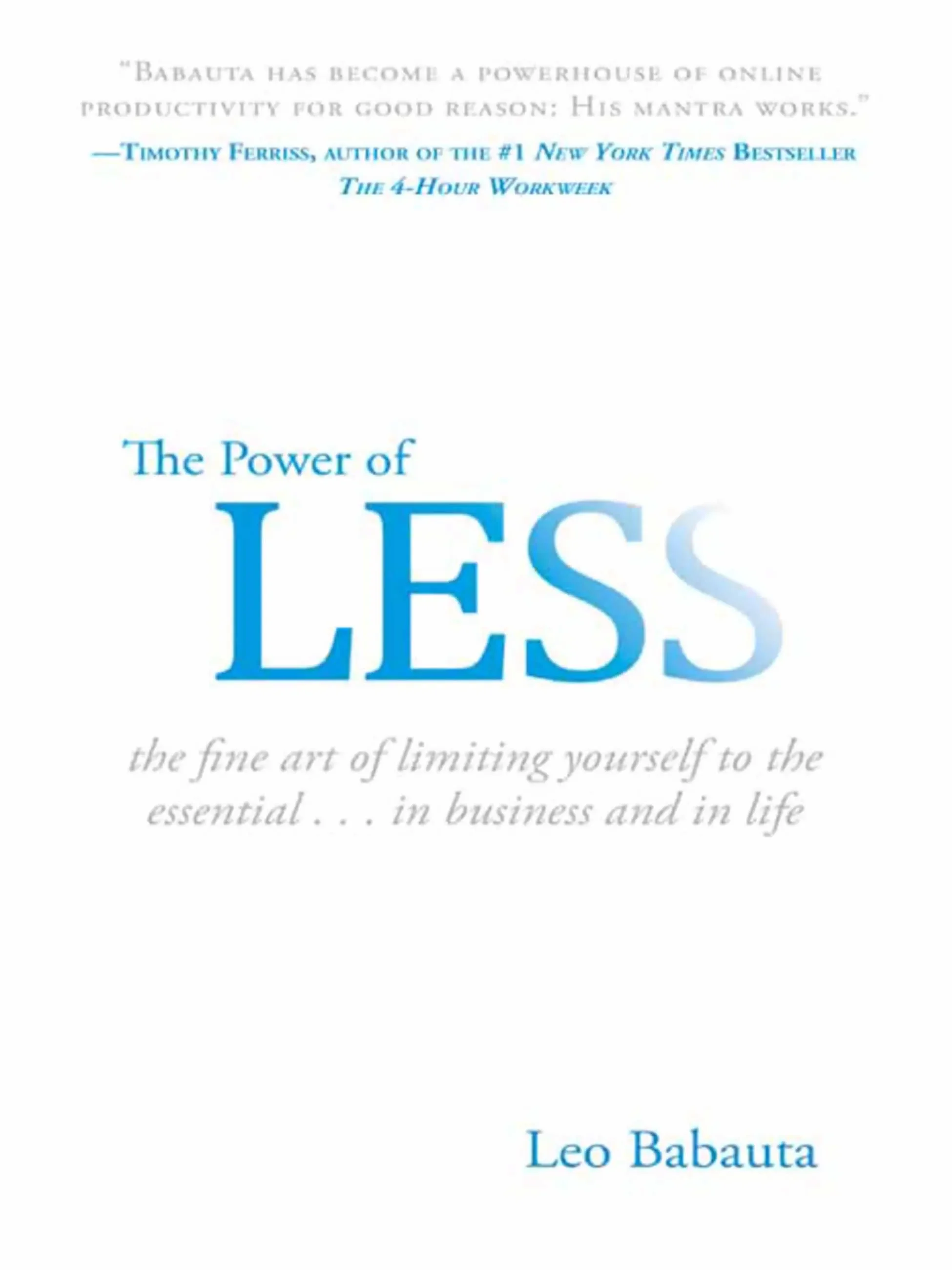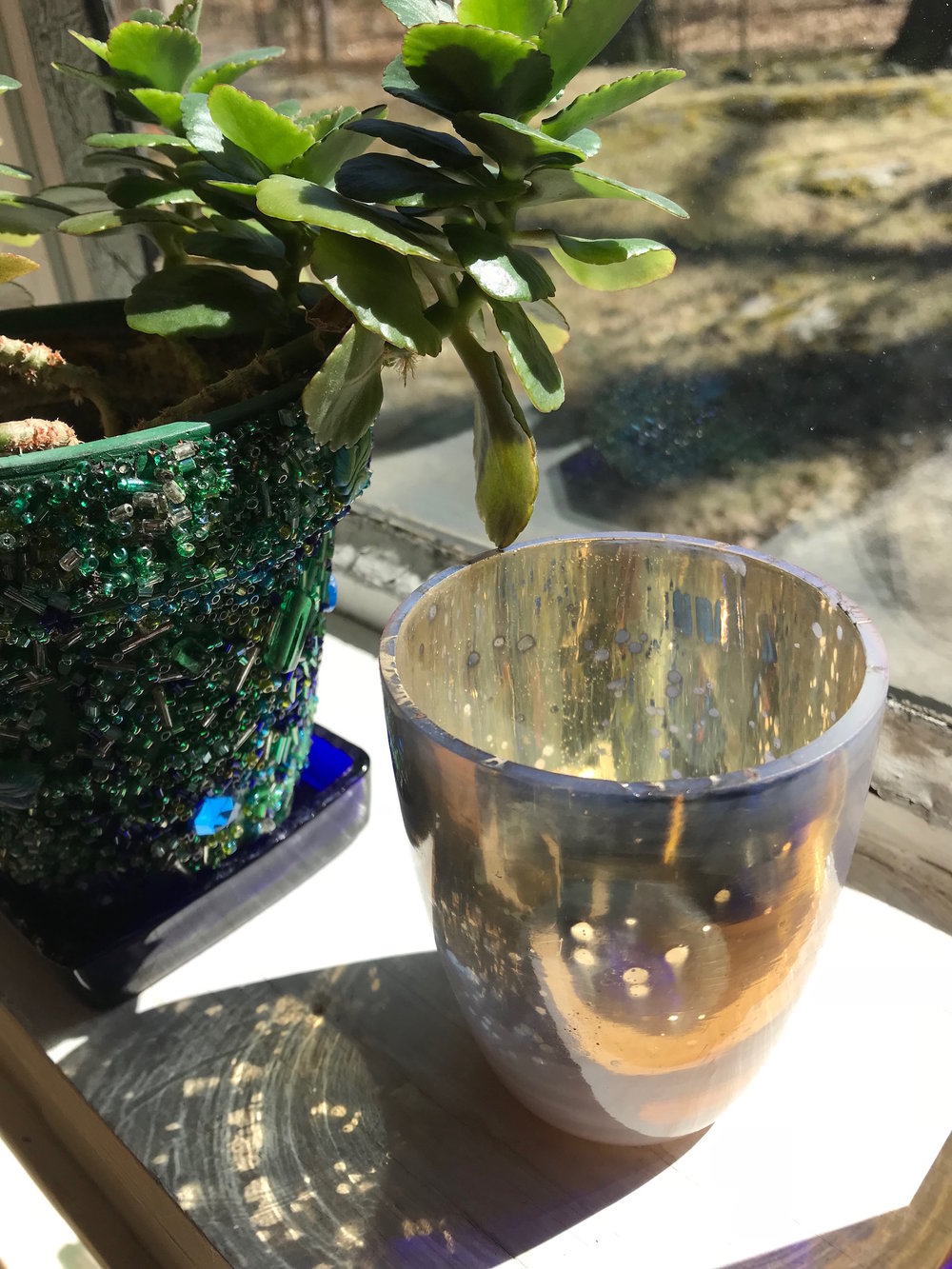
The newest installment (v18) of the “What’s Interesting?” feature is here with my latest discoveries that inform, educate, and relate to organizing and life balance.
I’ve included unique and inspiring letting-go-related finds, which reflect this month’s blog theme. You are such an incredibly engaged group, and I am so grateful for you.
I look forward to your participation and additions to the collection I’ve sourced. What do you find interesting?
What’s Interesting? . . .
1. Interesting Read – Letting Go Habits
We live packed, fast-paced lives with full schedules, lots of possessions, and many distractions. In The Power of Less – The Fine Art of Limiting Yourself to the Essential . . . in Business and in Life, Leo Babauta, writer and blogger at Zen Habits, encourages readers to simplify all aspects of their lives.
Babauta says, “Simplicity boils down to two steps: 1. Identify the essential. 2. Eliminate the rest.”
He shares principles such as setting limits, changing habits, and adjusting focus to let go of the mindset of needing more.
Practical strategies for applying these principles to goal setting, time management, decluttering, and other areas are also discussed. There are some gems throughout, but I especially appreciate the overall focus on moving towards less. Babauta says, “Focus on the essential and allow everything else to drop away. It’ll make you much happier, less stressed, and perhaps surprisingly, more productive.”
2. Interesting Research –Letting Go Psychology
Some of the reasons why letting go becomes challenging are that we get attached to or have an exaggerated sense of responsibility towards our belongings. In this short TED-Ed video by Christian Jarrett, “Why are we so attached to our things?” he explains some of the research and psychology behind our attachments. For example, Jean Piaget, a Swiss psychologist who pioneered work in child development, identified the “endowment effect.”
Early in life, a sense of ownership emerges where we value something more highly as soon as we own it. This can make letting go more difficult. Understanding more about our attachments can be the key to starting the process of letting go.
3. Interesting Trend – Letting Go Motivation
Margareta Magnusson
Recently, I came across a phrase that piqued my curiosity. It was “Swedish death cleaning.” Have you heard of it? Margareta Magnusson, a Swedish artist and author of The Gentle Art of Swedish Death Cleaning – How to Free Yourself and Your Family from a Lifetime of Clutter, uses the inevitability of death as the motivation to let go of your unnecessary possessions.
The idea behind death cleaning is to minimize the amount of belongings that you leave behind for others to manage. I have helped many clients downsize, de-possess, and let go of their deceased loved ones’ belongings. I understand the value in taking personal responsibility for your own possessions so that others won’t have to.
Reframing the idea of letting go, as a gift to our loved ones, could be just the motivation needed to get you through.
4. Interesting Product – Letting Go Flash Cards

One of the most innovative thinkers and authors in the organizing industry is my friend and colleague, Judith Kolberg.
True to her creative process, she developed the “Get Rid of Your Stuff” flash cards. If you’re feeling stuck with what to do with your excess things, you’ll want these cards.
There are a dozen different options for letting things go, like donating or selling them, along with tips for each category. Supercharge your decision-making and letting-go skills with this well-thought-out product.
5. Interesting Thought – Letting Go Breath
Have you ever noticed that when you hold on too tightly, your body tenses up? Your breathing becomes shallow, or you might even hold your breath. Holding on requires energy.
When we hold on to things, people, and places that no longer support us, we’re expending energy and effort that could be released or used in other ways. Let go and release your grip. Take a deep breath in. Let a big exhale out. Repeat as needed. Let go of what’s holding you back.
What are your interesting finds? Which of these resonates with you? I’d love to hear your thoughts. Come join the conversation!












